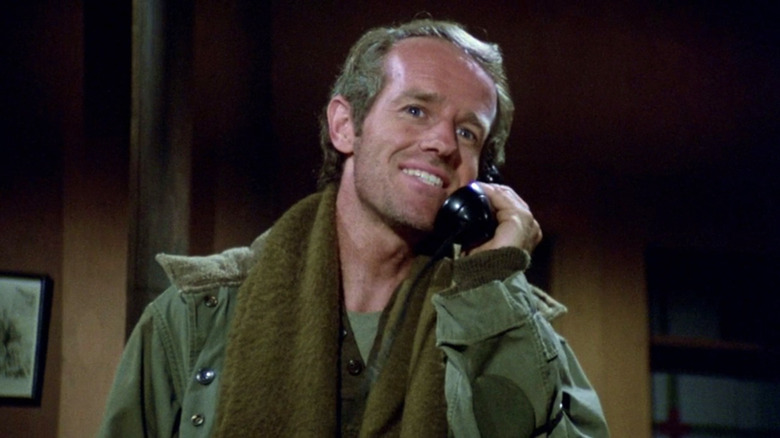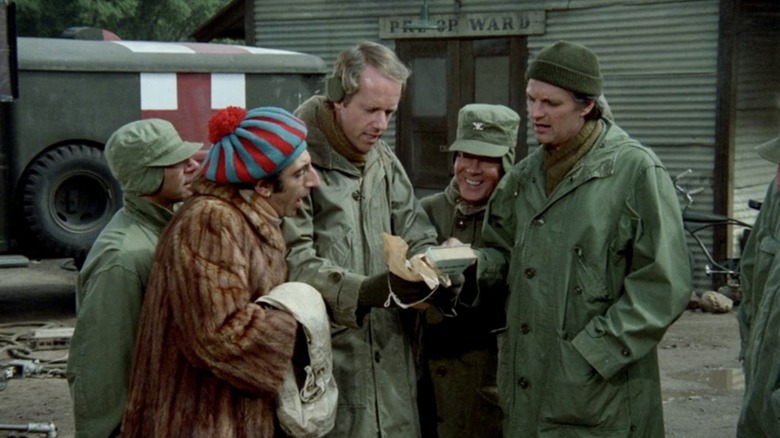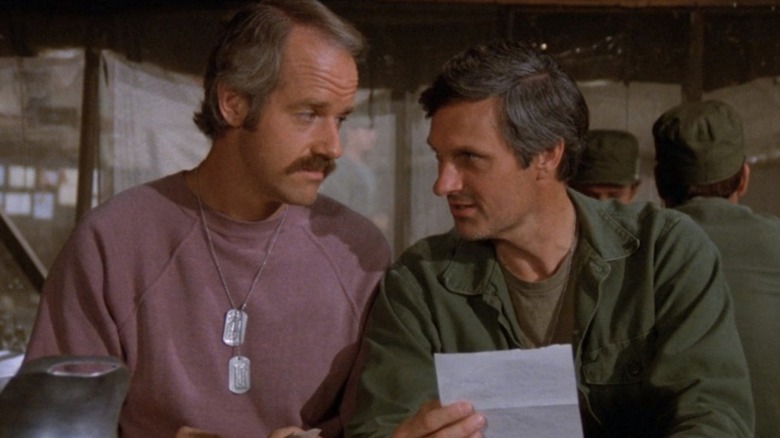The classic sitcom series “M*A*S*H” had a pretty expansive cast of characters as it followed the servicemembers assigned to the 4077th Mobile Army Surgical Hospital, and the main crew had some major changes over the years. In fact, only Captain “Hawkeye” Pierce (Alan Alda) appeared in every episode. Both Wayne Rogers, who played Hawkeye’s roommate and BFF Trapper John, and McLean Stevenson, who played camp commander Colonel Henry Blake, left the series after the third season in large part because they felt like they were playing second fiddle to Alda, and that meant replacing their characters in some way. Both Trapper and Col. Blake were sent home by the army (though Blake’s plane was shot down on the way, upsetting some viewers), and that meant the 4077th needed two new surgeons.
Enter Captain B.J. Hunnicutt, a good-natured Californian wife guy who becomes Hawkeye’s new roommate and soon his soulmate new best friend, played by Mike Farrell. It had to be intimidating to join the cast of a successful sitcom with three seasons under its belt and even more intimidating to replace a beloved character, and on an episode of the interview web series “That’s Classic!,” Farrell explained that even though it all worked out for the best, joining “M*A*S*H” was initially a “terrifying” experience.
Farrell was worried the cast and audiences would reject him
When asked about how it felt to sign on for “M*A*S*H,” Farrell admitted that it was “nerve-wracking” and elaborated:
“It was terrifying. […] I so admired the show that the opportunity to become part of it was this phenomenal sort of dream because you know I mean the show was already up and going when I was admiring it. But yeah what I knew from being in television for a while was that if this show crashed in its fourth season I was going to wear it around my neck for the rest of my life. […] I also had to some concern I mean I knew just from reading stuff that they had a very nice sort of interpersonal relationship and a kind of a family on the set and I thought ‘God you know what if the what if the crew and the company and the actors all think of me as an interloper?”
There would be other departures from “M*A*S*H” soon after, including series co-creator Larry Gelbart and Larry Linville, who played the cartoonishly villainous Major Frank Burns, but Wayne Rogers’ was early and probably felt pretty massive to audiences in the mid-1970s, so Farrell had reason to be nervous. Not only that, but he didn’t want to be alienated from the cast. Thankfully, he said that everyone was very welcoming on set, and he really had nothing to worry about as far as audiences went, because B.J. quickly became beloved.
But he didn’t need to worry — B.J. became a fan-favorite
Even though B.J. is almost a little too perfect sometimes (other than the time he cheated on his wife Erin), Farrell plays him with so much affable charm that it’s hard not to love him. He and Alda have incredible onscreen chemistry that makes B.J. and Hawkeye’s friendship one of the greatest onscreen pairings of all time, and he even gets to act out his fears (in character) in an episode where B.J. feels jealous when he hears too many stories about how great Trapper’s pranks were. B.J. ended up staying with the series until the very end and frequently served as the straight man to everyone else’s shenanigans, and it’s hard to imagine “M*A*S*H” without him.
The early seasons of “M*A*S*H” are good, but the later seasons are great, and while there are a number of reasons for that, at least a little of the credit has to go to Farrell, who works as the perfect match for Alda’s Hawkeye, sharing his sense of humor and attitude toward the military without battling him for dates with nurses or trying to be the series lead. It’s also impossible to imagine the series without B.J.’s hilarious 1970s mustache that’s pretty out of place in the show’s Korean War setting, because just look at that thing. It’s glorious.




Leave a Reply